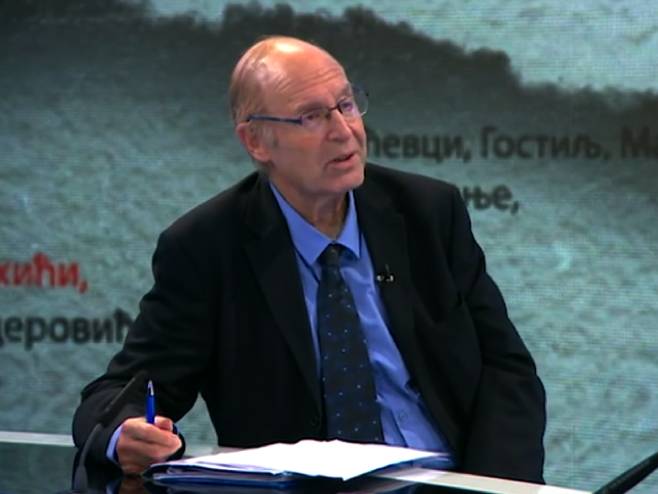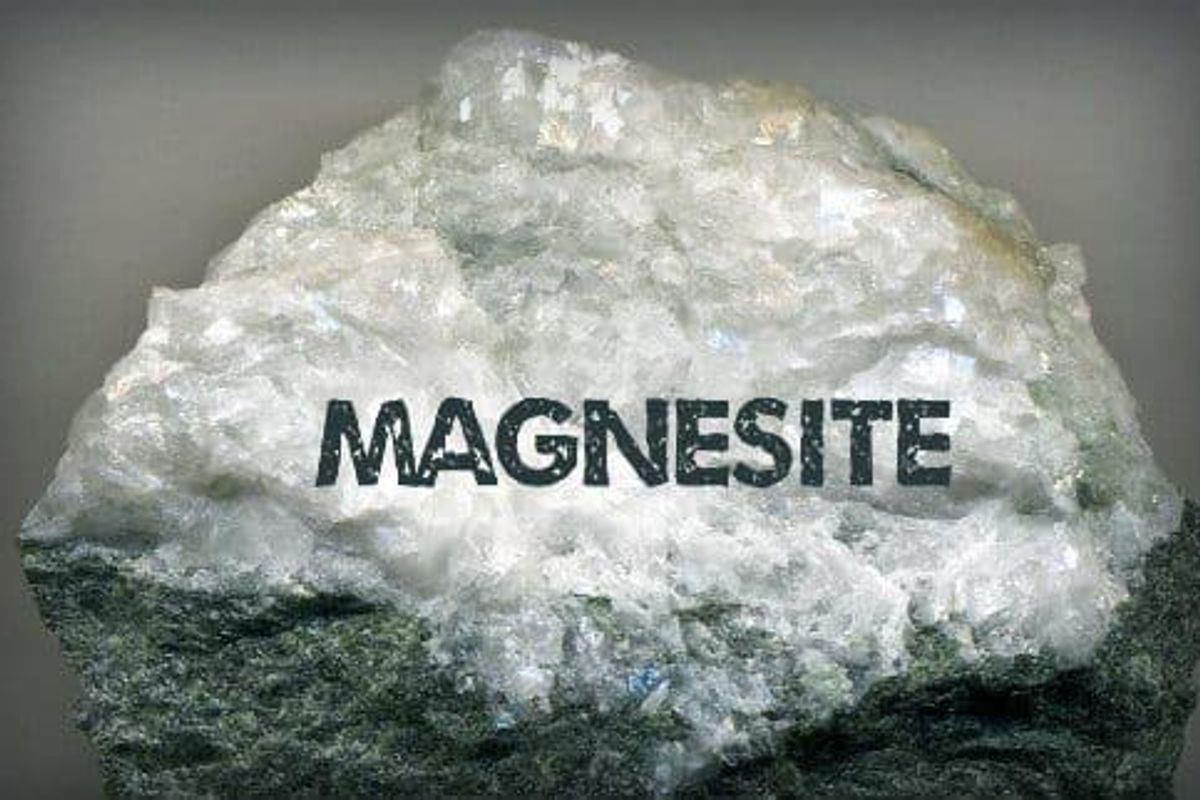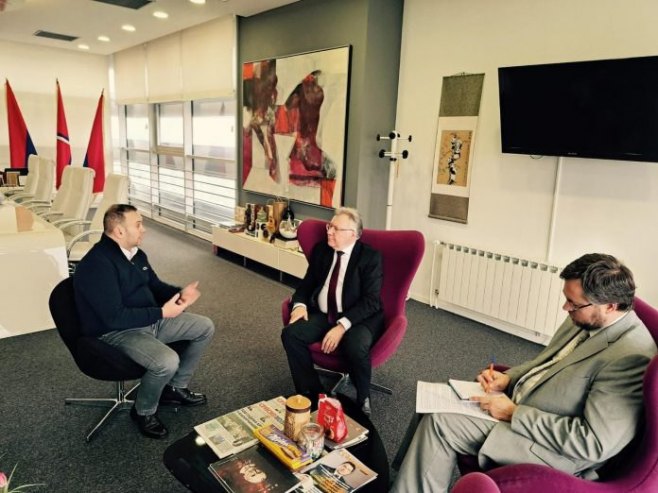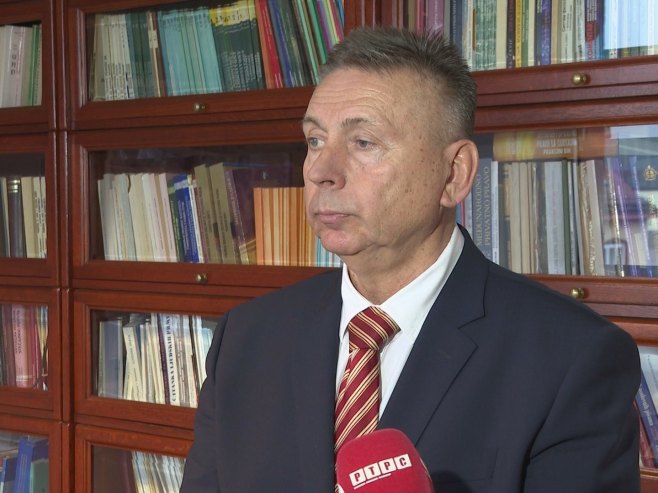Gideon Greif, the president of the Independent International Commission for the Investigation of the Suffering of All Peoples in the Srebrenica Region from 1992 to 1995, stated that the resolution on Srebrenica, which focuses on just one day of the war in BiH, is absurd and one-sided, with significant consequences and discrimination against 100,000 victims. He assessed that it will not be applied as widely as the sponsors expected.
This Israeli historian believes that most countries will treat July 11 only as a recommendation, and that many countries have reservations and will not implement the resolution adopted by the UN because it speaks of an “absolute victim” while excluding all others.
“Without taking into account historical truth and the events of the three-year war that led to the Srebrenica case, different countries will not implement the UN resolution. The hope that this absurd and discriminatory resolution on Srebrenica will not be widely recognized as expected by its sponsors is supported by the fact that out of 193 member countries, only 84 voted in favor, while 109 did not,” Greif emphasized.
He pointed out that the politicization of genocide is dangerous and that all victims in BiH deserve to be remembered and not discriminated against by a one-sided resolution on Srebrenica adopted by the UN.
“This is an ill-considered and unnecessary step, especially after 29 years. It is wrong to extract only one day, July 11, from the context of the three-year war in BiH and base a resolution on just one day of the war,” said Greif, who is also an expert on the Holocaust.
He noted that the process of turning a specific historical day into a day of national remembrance is a long process and should be based primarily on the international recognition of all peoples.
Greif told Tanjug that the adoption of the resolution on Srebrenica by the UN was opening Pandora’s box and that as long as there is denial of war crimes from World War II and later during the 1990s, there is no chance for genuine reconciliation among the peoples in the Balkans.
“This is an unfortunate decision that will, unfortunately, only deepen the conflicts in BiH and spread them throughout the Balkans, which has witnessed too many conflicts in its history,” Greif warned.
He stressed that true reconciliation among the peoples of the Balkans can only happen with the acknowledgment of historical facts and that it is impossible to move toward mutual reconciliation and the creation of genuine peace without taking into account the findings of the Independent International Commission for the Investigation of the Suffering of All Peoples in the Srebrenica Region from 1992 to 1995 and without considering the victims of all ethnic communities in BiH.
Greif believes that this cannot happen without considering all the circumstances that led to the war and war crimes and without internationalizing this comprehensive approach needed for justice in a historical and military context and without differentiating the severity of crimes committed by all sides.
“Unfortunately, different sides in the Balkan region, especially Croatian and Bosnian Muslims, are not ready to acknowledge the crimes they committed in the past, and as long as this acknowledgment is lacking, the chances of overcoming the wounds and scars of the past are slim,” Greif noted.
He recalled that the Independent International Commission for Srebrenica took into account all three years of the war and all 100,000 victims from all ethnic communities, without discrimination and without declaring only one ethnic group as the “absolute victim,” because wars have war crimes on all sides and all circumstances must be seriously considered.
Greif noted that the Commission, in its report’s conclusion, calls for the peaceful resolution of all conflicts and a culture of remembrance for all victims, as well as the creation of harmony and reconciliation among all involved parties in BiH.
“There are no angels in wars, and nothing is purely black and white. The gray nuance is missing in this UN resolution on the Srebrenica case, as it challenges the definition of genocide and questions the Universal Declaration of Human Rights and the rights of victims to a culture of remembrance for all sides,” Greif pointed out.
He said that the politicization of genocide is dangerous because not every war crime is genocide.
“In Srebrenica, there were war crimes, in Bratunac there were war crimes, and in Kravica there were war crimes. But different sides in BiH committed them. Are all these war crimes genocide? No, they are not,” Greif said.
He believes that it is necessary to remind the UN and the world that humanity lost 60 million people in World War II and asked whether there is a resolution for the 60 million victims of World War II.
“No. Therefore, all victims in BiH deserve to be remembered and not discriminated against by this one-sided resolution on Srebrenica,” Greif said.
Responding to a question about how he comments on the decision of the Montenegrin Assembly to adopt a Resolution on the Genocide in Jasenovac, Mauthausen, and Dachau, Graif assessed that there are many common denominators between the crimes of Nazi Germany and the crimes of the Ustaše and the Independent State of Croatia, and that Ustaše crimes must also be treated like Nazi crimes.
Source: RTRS









